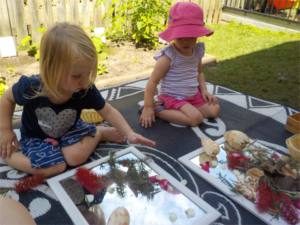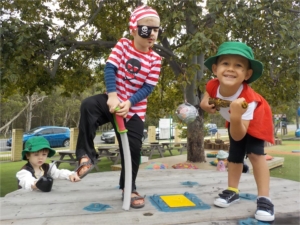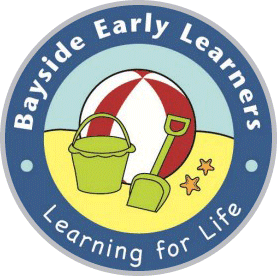Learning Through Play
“You are troubled at seeing him spend his early years in doing nothing. What! Is it nothing to be happy? Is it nothing to skip, play and run around all day long? Never in his life will he be so busy as now.”
Jean-Jacques Rousseau

At Bayside Early Learners we believe that play is a vital part of every childhood. Research tells us that through play, young children explore the world around them and communicate what still needs to be learnt. While playing children are learning and making sense of the world and their community. We believe that children learn best through hands on, play based learning where there is a strong connection between the child, nature and the outdoors. A play based program will see your child participating in small and group intentional teaching moments, group sharings for songs and stories as well as creative and dramatic experiences.
“It is paradoxical that many educators and parents still differentiate between a time for learning and a time for play without seeing the vital connection between them.”
Leo F. Buscaglia
While there is no one definition of play, there are a number of agreed characteristics that describe play. Play can be described as:
- pleasurable-play is an enjoyable and pleasurable activity. Play sometimes includes frustrations, challenges and fears; however, enjoyment is a key feature
- symbolic-play is often pretend; it has a ‘what if?’ quality. The play has meaning to the player that is often not evident to the educator
- active-play requires action, either physical, verbal or mental engagement with materials, people, ideas or the environment
- voluntary-play is freely chosen. However, players can also be invited or prompted to play
- process oriented-play is a means unto itself and players may not have an end or goal in sight
- self-motivating play is considered its own reward to the player (Shipley, 2008).
The EYLF otherwise known as the Early Years Learning Framework is part of the Council of Australian Government’s reform agenda for Early childhood education. It is built on the recognition that children start learning from birth and even pre-birth and that providing children with the right environment, tools, guidance and methods of learning can actually help to increase their ability to learn throughout their lives. Play is an underpinning element of the Early Years Learning Framework.

